- Austausch & Vernetzung
- Wissen & Lernen
- Advocacy
- Unsere Themen
Eigentlich wollten wir Sie mit diesem Newsletter zu unserer Fachtagung am 6. Mai 2020 einladen - doch Corona macht auch uns einen Strich durch die Rechnung. Wir müssen daher, sehr zu unserem Bedauern, die diesjährige Fachtagung zum Thema "Realising Gender Equality" absagen.

Stattdessen haben wir für Sie einige Nachrichten zusammengestellt, die Sie mit Hintergrundartikeln zu den Folgen des Corona-Virus im globalen Süden versorgen sollen – Dimensionen, welche die hiesigen Medien derzeit eher vernachlässigen.
Gerne weisen wir Sie ausserdem auf zwei interessante Themensammlungen zum Corona-Virus unserer Partner hin.
In diesem Sinne - bleiben Sie gesund und solidarisch!
Ihr Netzwerk Medicus Mundi Schweiz

Teleworking/Homeoffice Resource List
"As international development professionals, we are accustomed to collaborating with people who are not located in the same office as we are. It comes with the territory—working with people in multiple countries, across various time zones. Beyond this, remote working in the sector includes people teleworking regularly from home, supervisors managing employees who spend time working away from the office and daily interactions with colleagues posted overseas. We know that effective collaboration is incredibly important to the success of development work. After all, it is the C in Collaborating, Learning, and Adapting (CLA)."
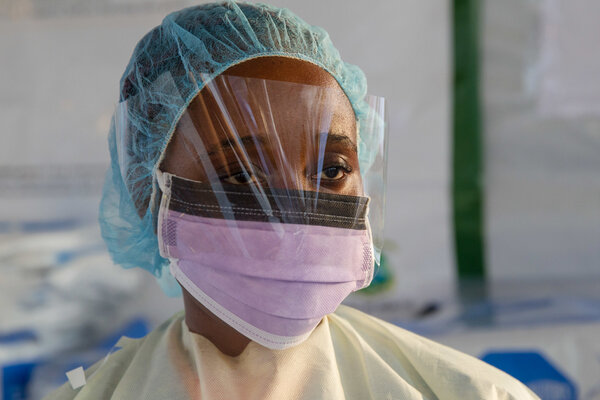
World Health Organisation (WHO) "In order to assist UN country teams in scaling up country preparedness and response to COVID-19, WHO has developed these learning modules as a companion to the Operational Planning Guidelines to Support Country Preparedness and Response. Enroll for this course: https://openwho.org/sessions/new" (Photo: UNMEER/flickr, CC BY-ND 2.0)
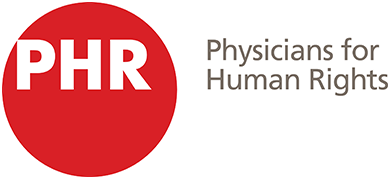
Physicians for Human Rights "As the historic and unsettling COVID-19 pandemic unfolds, we're all looking for perspective and guidance that can help us navigate these uncharted waters. PHR's community of experts – physicians, nurses, public health specialists – have an in-depth knowledge of how governments and health professionals can fight the coronavirus while preserving human rights. This Thursday, March 19, PHR’s medical director Dr. Michele Heisler will be joined by Laurie Garrett for an exclusive briefing webinar on science-driven solutions for combating COVID-19." (Photo: Logo PHR)
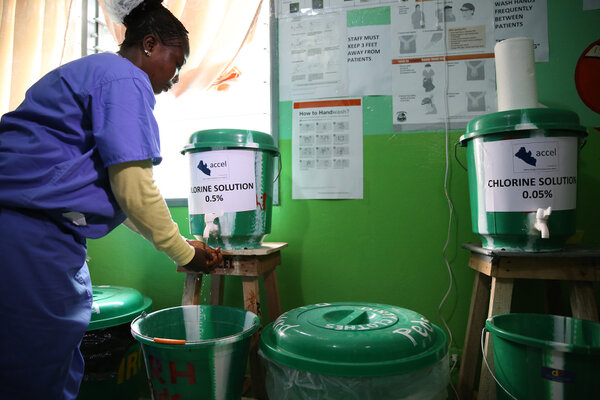
The Corona Virus Epidemic in the Global South. By Andreas Wulf
"Why are disease outbreaks and health problems only of global interest when they affect the countries and transport routes relevant to the global economy, such as the current corona virus outbreak? Or are they simply better perceived there? In any case, the last few weeks have made it clear: The much-touted "global community" is prepared to invest much more in fighting them than it did in the case of an acute measles outbreak in 2019, which killed over six thousand people in the Democratic Republic of Congo, or the Ebola outbreak, which has not been stopped in the same country for a year and a half now, killing 2,250 people." (Photo: Nurse at Redemption Hospital washes her hands/World Bank Photo Collection/flickr, CC BY-NC-ND 2.0)

"Bamako – Die Bischofskonferenz von Burkina Faso und Niger äußert sich deutlich zum Coronavirus. Nachdem am vergangenen Montag in der Hauptstadt Ouagadougou zwei Fälle bestätigt wurden – am Samstag waren es bereits sieben Fälle – hat sie einen Maßnahmenkatalog verabschiedet, um die Ausbreitung des Virus einzudämmen. Kreuzwege, Versammlungen und Pilgerreisen sind künftig verboten. Auf das Händeschütteln während des Friedensgrußes wird verzichtet. Die Kommunion darf nur noch mit der Hand empfangen werden. Eine vorherige und spätere Desinfektion der Hände ist Pflicht." (Foto: coronavirus-covid-19/sergio santos/CC BY 2.0)
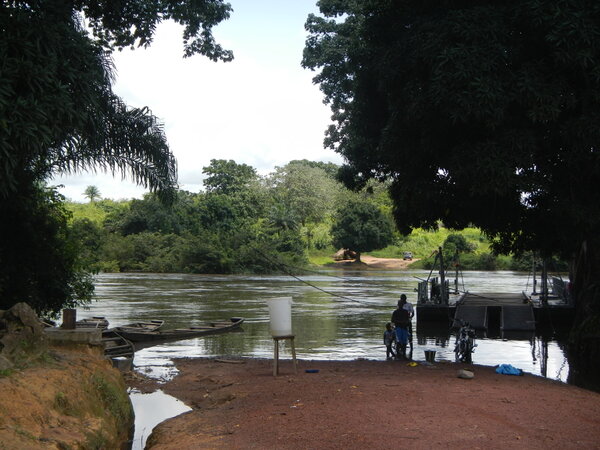
When you train yourself to kill lions you are less afraid of panthers (Nigerian proverb)
"The Coronavirus epidemic that is making headlines in the media around the world has not spared West and Central Africa. 9 countries out of the 12 affected by Coronavirus on the African continent are from this region (Senegal 10, Ghana 2, Cameroon 2, Nigeria 2, Burkina Faso 2, DRC 1, Cote d’Ivoire 1, Togo 1, Gabon 1), even if most are imported cases. However, there is no death so far, Senegal has even announced that two of the 10 infected people are now cured." (Photo: The border of Sierra Leone and Guinea/CDC Global/flickr, CC BY 2.0)
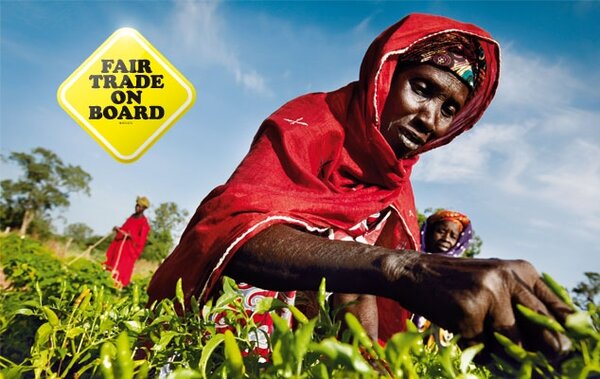
What are the channels of economic impact we can expect from COVID-19?
"As travelers cancel flights, businesses ask workers to stay home, and stocks fall, a global health crisis becomes a global economic crisis. In any health crisis, our first concern is (and should be) with the health of those affected. More than 4,000 people have died worldwide and more than 113,000 cases have been confirmed in over 110 countries. But unfortunately, the economic impacts also have dramatic effects on the wellbeing of families and communities. For vulnerable families, lost income due to an outbreak can translate to spikes in poverty, missed meals for children, and reduced access to healthcare far beyond COVID-19. While the spread in the United States and Europe absorbs much of the media coverage, confirmed cases from Bangladesh to Brazil, from Cameroon to Costa Rica, and in many other low- and middle-income countries mean that many of the economic impacts may affect the world’s most vulnerable populations." (Photo: Trade for Development/flickr, CC BY-NC-ND 2.0)
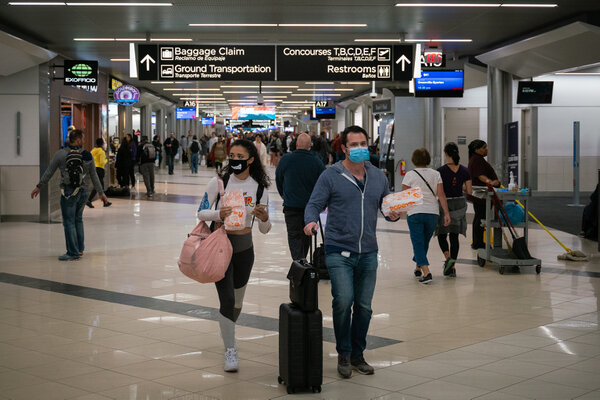
"Er ist der erste Mensch in Afrika südlich der Sahara, bei dem eine Erkrankung durch das neuartige Coronavirus festgestellt worden ist: ein in der nigerianischen Metropole Lagos wohnhafter Italiener, der am Dienstag aus Mailand zurückkehrte. Dies vermeldete das Gesundheitsministerium des westafrikanischen Landes am Freitagmorgen. Zuvor war das Virus in Afrika erst bei je einer Person in den nordafrikanischen Staaten Ägypten und Algerien diagnostiziert worden. (...) Für Länder südlich der Sahara ist das Coronavirus eine besondere Herausforderung – auch wegen enger Verbindungen mit China." (Foto: Coronavirus/Chad Davis/flickr, CC BY-SA 2.0)
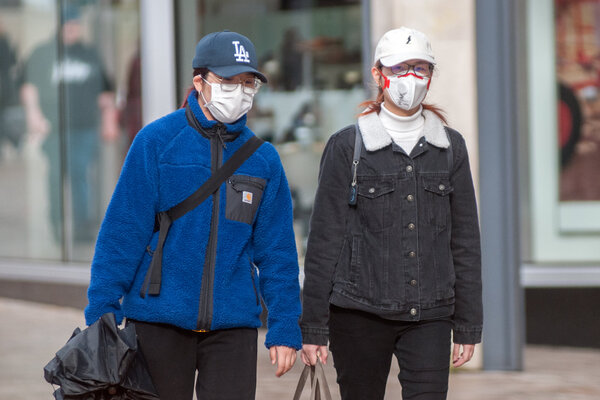
Die Weltgesundheitsorganisation (WHO) ist regelmässig sowohl uneingeschränktem Lob als auch bissiger Kritik ausgesetzt. Wurde sie 2009 gegenüber der Schweinegrippe dafür kritisiert, überreagiert zu haben, warf man ihr 2014 gegenüber der Ebola-Epidemie in Westafrika vor, zu zurückhaltend gewesen zu sein. Der Leiter des Instituts für globale Gesundheit an der Universität Genf, Antoine Flahault, vermutet gegenüber der Zeitung Le Temps, dass sich die WHO nach der gegenwärtigen Krise tiefgehenden Fragen stellen müsse, die ihre Funktionsweise, ihre Gouvernanz, ihre Unabhängigkeit und ihre Mittel betreffen. (Foto: COVID-19 - Coronavirus/Tim Dennell/flickr, CC BY-NC 2.0)
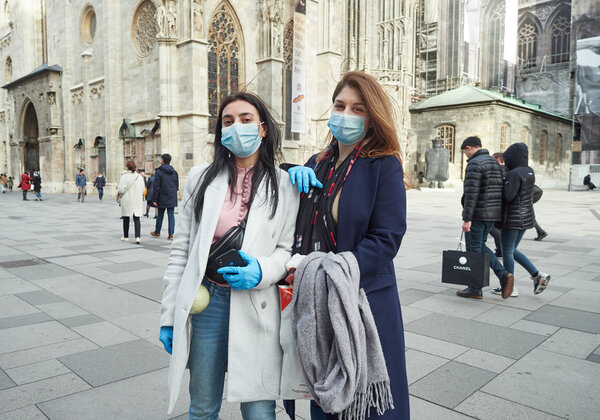
Ein Bericht von Health Policy Watch zur Entscheidung der WHO und zum weltweiten Anstieg an Neuinfektionen
Die Weltgesundheitsorganisation (WHO) stuft die Verbreitung des neuen Coronavirus nun als Pandemie ein. Dies erklärte der WHO-Generaldirektor Dr. Tedros am 11. März 2020 in Genf. Er kritisierte dabei fehlendes Handeln und das alarmierende Niveau an Untätigkeit im Kampf gegen das Virus durch die Staaten weltweit. Er geht davon aus, dass die Zahlen in den kommenden Wochen noch weiter ansteigen werden. Tedros wies darauf hin, dass alle Länder den Verlauf der Pandemie noch ändern könnten und empfiehlt einen "gemischten" Ansatz . Einerseits die Stärkung der Kapazitäten von Krankenhäusern und Gesundheitseinrichtungen bei gleichzeitiger Weiterführung von notwendigen Massnahmen zur Eindämmung des Virus. Die letzte Pandemie war 2009 aufgrund des H1N1 Influenza von der WHO ausgerufen worden. Eine Pandemie bezeichnet eine sich schnell ausbreitende ganze Länder und Kontinente erfassende Krankheit. (Foto: Corona-Pandemie/ Michael Gubi/flickr, CC BY-NC 2.0)
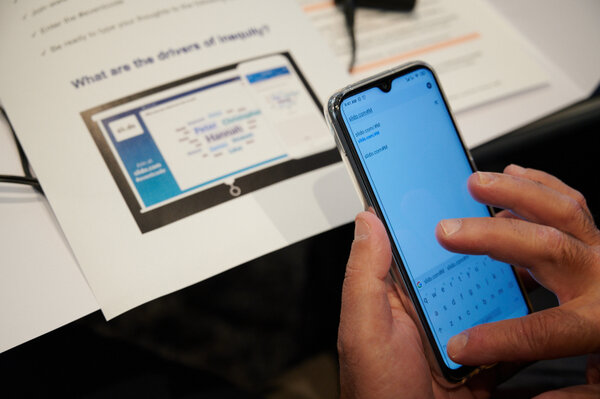
"As the COVID-19 crisis seeps into financial markets, corporate board rooms, and global health systems, there may be one silver lining in an otherwise dark cloud. The 21st century era of digital health, virtual meetings and teleworking is upon us. Countries as far-flung as the Republic of Korea, Israel and even some forward-looking US health care providers are rushing to adopt tele-health, mobile health and AI solutions to protect their front-line health workers from COVID-19 infection." (Photo: MMS Symposium 2019/ © Network Medicus Mundi Schweiz)
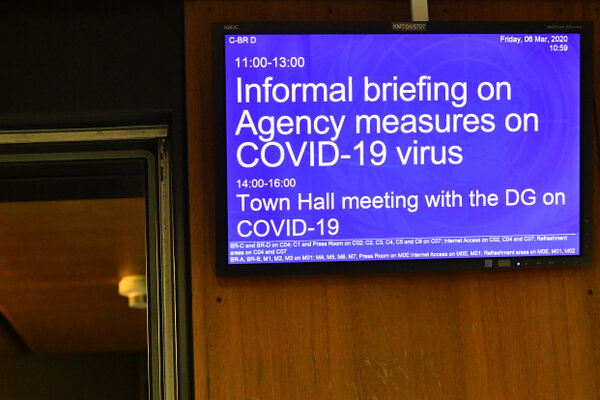
Die europäischen Regierungen schauen nicht nur geschockt auf die rasante Ausbereitung von COVID-19 in Italien, sondern auch etwas hilflos auf die täglich im eigenen Land steigenden Neuansteckungen. Haben die Länder die Gefahr unterschätzt und zu spät gehandelt?